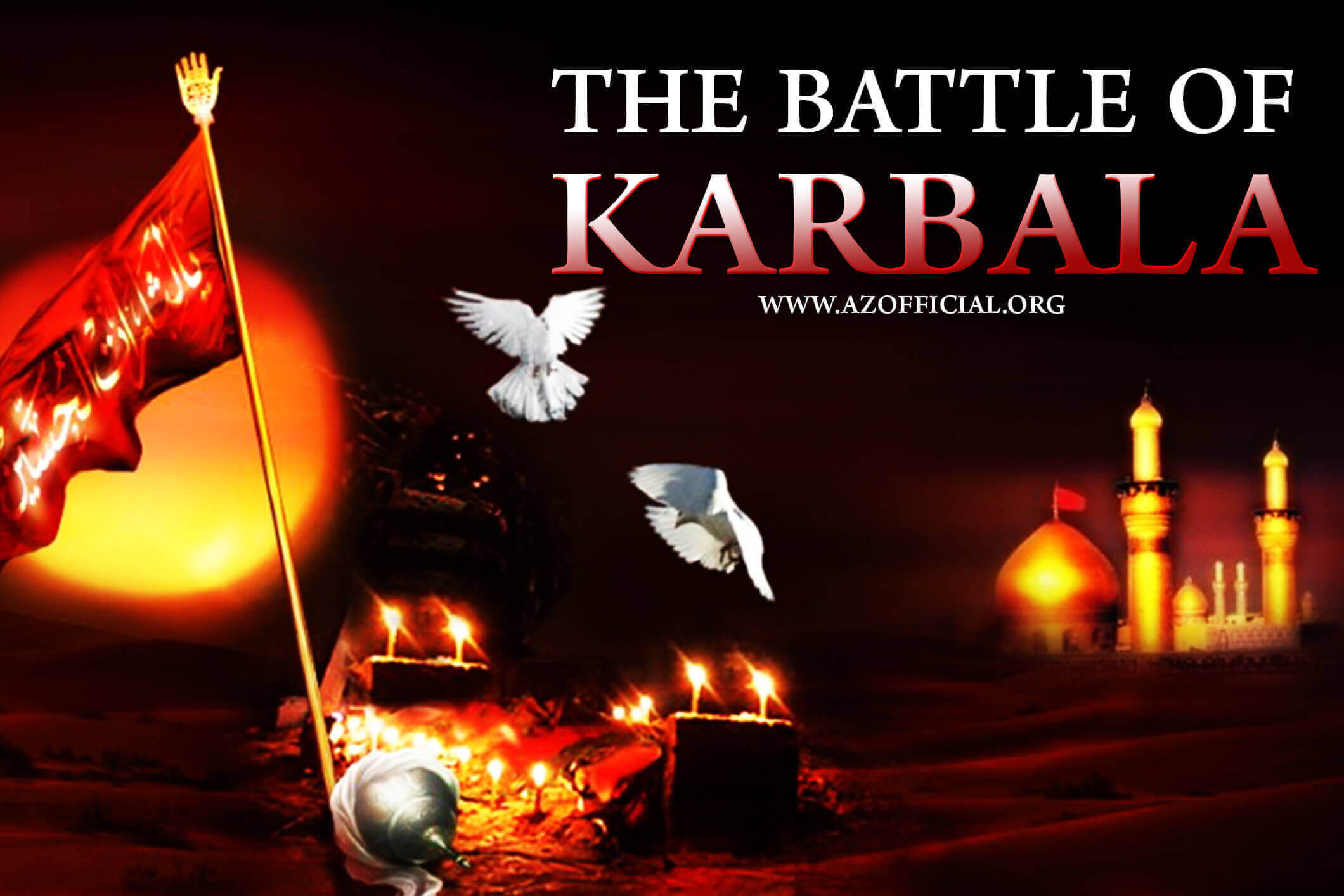
Why Waqia Karbala Still Matters
The Waqia Karbala (واقعہ کربلا) is one of the most tragic and transformative events in Islamic history. Every year, Muslims worldwide mourn the Battle of Karbala, which took place on 10 Muharram 61 AH (October 10, 680 CE). This battle was not just a clash of armies—it was a struggle between truth and falsehood, justice and oppression, and faith and tyranny.
At its core, the Battle of Karbala represents the ultimate sacrifice of Imam Hussain ibn Ali (AS), the beloved grandson of Prophet Muhammad (PBUH), and his 72 loyal companions against the oppressive rule of Yazid ibn Muawiyah.
Table of Contents
Historical Background: What Led to the Battle of Karbala?
After the death of Muawiyah ibn Abi Sufyan, his son Yazid forcefully claimed the caliphate. Unlike the previous rightly guided caliphs, Yazid ruled with corruption, openly violating Islamic principles.
Key Causes of the Battle:
- Yazid’s Demand for Allegiance (Bay’ah) – Yazid pressured Imam Hussain (RA) to pledge loyalty, but Hussain refused, knowing it would legitimize tyranny.
- Invitation from Kufa – The people of Kufa (Iraq) sent letters promising support if Imam Hussain led a revolt against Yazid.
- Moral Stand Against Oppression – Imam Hussain chose principles over power, declaring, “I will never submit to a ruler who opposes Islam.”
Imam Hussain’s Journey to Karbala
Imam Hussain (RA), along with his family and 72 companions, left Makkah for Kufa. However, Yazid’s governor, Ubaydullah ibn Ziyad, sent an army to intercept them.
Key Events Before the Battle:
- Imam Hussain was blocked from reaching Kufa and forced to stop at Karbala.
- Yazid’s army, led by Umar ibn Sa’ad, surrounded them and cut off their water supply for three days.
- Despite being outnumbered (72 vs. 30,000), Imam Hussain refused to surrender.
Ashura: The Day of the Battle of Karbala
On 10 Muharram (Ashura), the brutal battle began. One by one, Imam Hussain’s companions and family members were martyred.
Heart-Wrenching Martyrdoms:
- Ali Akbar (AS) – Imam Hussain’s eldest son, killed in single combat.
- Qasim ibn Hasan (AS) – His young nephew, slaughtered on the battlefield.
- Abbas ibn Ali (AS) – The brave flag-bearer, killed while fetching water.
- Ali Asghar (AS) – A 6-month-old baby, struck by an arrow in his father’s arms.
Finally, Imam Hussain (RA) was brutally martyred, and his head was severed and sent to Yazid. The surviving women and children were taken as prisoners.
Aftermath of Karbala: The Voice of Truth
Though Imam Hussain (RA) was martyred, his sacrifice ignited a global movement against oppression.
Key Aftermath Events:
- Zainab bint Ali (AS) – Imam Hussain’s sister, fearlessly exposed Yazid’s crimes in his own court.
- Impact on Islamic History – Karbala became a symbol of resistance, inspiring future uprisings against tyranny.
- Commemoration (Majalis & Azadari) – Muslims worldwide honor Ashura through mourning processions, sermons, and charity.
Historical Significance & Legacy of Karbala
The Battle of Karbala left an indelible mark on Islamic history:
Shia Muslims – Observe mourning rituals (Majalis, Matam, Ta’ziyah).
Sunni Muslims – Respect Imam Hussain’s stand without ritual mourning.
Universal Lessons – Teaches courage, justice, and resistance against oppression.
How Karbala is Remembered Today?
- Processions in Karbala (Iraq), Pakistan, India, Iran
- Charity (Sadaqah) and Fasting (Ashura)
- Speeches & Documentaries on Imam Hussain’s Sacrifice
Outbound Links for Further Study
- Battle of Karbala – Britannica
- Who Was Imam Hussain? – Al-Islam.org
- History of the Caliphate – Oxford Islamic Studies
- Ashura in Islamic History – BBC Religion
Conclusion: The Eternal Message of Karbala
The Waqia Karbala is not just a historical event—it’s a timeless lesson in faith, justice, and sacrifice. Imam Hussain (RA) proved that truth cannot be silenced, even in the face of death.
“Every day is Ashura, every land is Karbala.”
His stand continues to inspire millions to fight oppression and uphold justice, no matter the cost.
Read More About:
By understanding the Battle of Karbala, we keep Imam Hussain’s legacy alive—standing for truth, no matter the odds.
